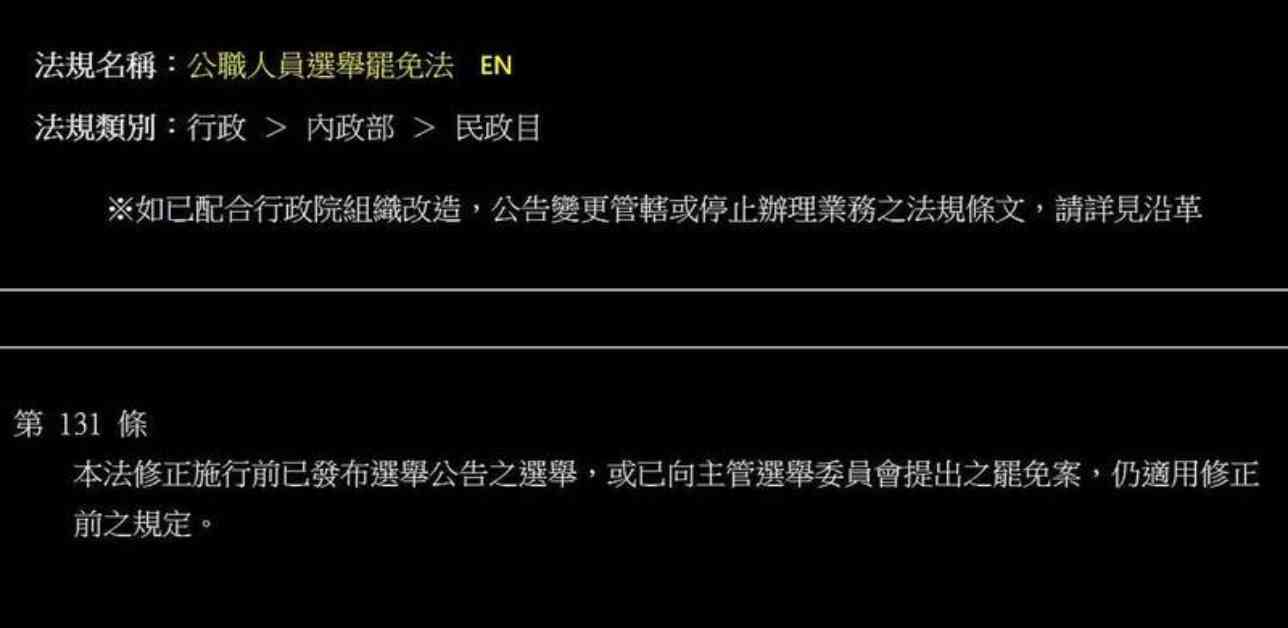Maintaining Consistency in Recall Procedures Without Changing Game Rules
In the realm of political recall procedures, consistency is key to upholding the integrity of the democratic process. The recent events surrounding the attempted recall of certain public officials in Taiwan shed light on the importance of adhering to established rules without trying to manipulate the system for personal gain.
The crux of the matter lies in Article 131 of the Public Officials Election and Recall Act, which dictates that once the metaphorical whistle blows to start the game, whether it be an election or a recall, the same set of rules must be applied from the announcement stage to the final results. This means that there can be no cherry-picking of old and new laws, no midway alterations to the rules of the game.
Expert legal minds, such as Lai Chung-chiang, emphasize the significance of this provision, as it serves as a safeguard against any underhanded attempts to subvert the democratic process. The law is clear: any election or recall process that has commenced prior to the enactment of amendments must continue under the previous regulations.
The recent legislative session in Taiwan, where the issue of recall procedures took center stage, saw a flurry of political maneuvering. Figures like Fu Kun-chi and Huang Kuo-chang attempted to outsmart the system by exploiting loopholes in the law. However, their tactics backfired, as they failed to account for the full force of Article 131 and the implications of trying to game the system.
Article 131 of the Public Officials Election and Recall Act, enacted in 2007, was designed to prevent any last-minute rule changes during the electoral process. The legislative intent was crystal clear: elections and recalls must adhere to a consistent set of rules from start to finish, encompassing everything from candidate registration to ballot counting.
As the clock ticks on the recall efforts targeting certain blue party legislators in Taipei, volunteer groups are mobilizing in full force around the city, spreading awareness and rallying support. The race is on to submit the recall proposal before the administrative review, legislative reassembly, and final decision-making process, all while navigating the legal timelines to ensure adherence to the old rules.
In the face of these challenges, democracy defenders are urged to press forward with determination and vigilance. The stakes are high, and the need to uphold the principles of fair play and consistency in recall procedures has never been more critical.
As we navigate the intricate web of legalities and political machinations, let us remember the words of Lai Chung-chiang, a stalwart advocate for democratic values and a beacon of hope for those who seek to uphold the rule of law in Taiwan. The road ahead may be fraught with obstacles, but with unity and determination, we can ensure that the democratic process remains untarnished and true to its founding principles.
In the end, it is not just a matter of legal technicalities or political wrangling—it is a question of preserving the very essence of democracy and the rights of the people to hold their leaders accountable. As we stand on the cusp of change, let us remember that the true measure of a society lies in its ability to uphold the rule of law and ensure that justice prevails, no matter the challenges that may come our way.












